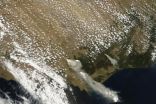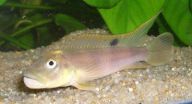(Press-News.org) Research has revealed that the extremely hot, dry and windy conditions on Black Saturday combined with structures in the atmosphere called 'horizontal convective rolls' -similar to streamers of wind flowing through the air - which likely affected fire behaviour.
The study is the first of its kind to produce such detailed, high-resolution simulations of weather patterns on the day and provides insights for future fire management and warning systems.
The work was led by Dr Todd Lane and Ms Chermelle Engel from The University of Melbourne with Prof Michael Reeder (Monash University) and Dr Michael Rezny (ARC Centre of Excellence for Climate System Science).
The team examined meteorological conditions across Victoria on 7 February, 2009. The analysis used a very high-resolution weather forecasting model, which represented the airflow over the entire state on 400 metre weather grids, which are about ten times smaller than the grids used in operational weather forecasting. Weather conditions observed on the day were used to validate the model.
"Fire fighters reported extraordinary behaviour from the Black Saturday bushfires. We wanted to understand what weather characteristics produce these extreme conditions to aid future fire control efforts," said Dr Lane from the School of Earth Sciences at The University of Melbourne.
"We found that weather events at a horizontal scale of about 10 kilometres introduced variability in the wind, temperature and humidity conditions. These smaller events combined to produce significant variability in fire danger across much of Victoria."
"Similar wind patterns have been observed previously on hot days, but the convective rolls on Black Saturday were unusual as the high temperatures meant they were stronger and spaced wider apart. The rolls create bands of fast and slow wind around 5-10 kilometres apart, causing variations in fire danger. Fire spread is related to wind speed and the rolls might have caused fires to behave differently over a relatively small distance," added Dr Lane.
On the day a strong late-afternoon cool change and a second weaker late-evening cool change altered conditions dramatically as it moved across the state.
Professor Reeder said one of the most astonishing results from the study was that after sunset the cold front generated a wave (technically called an undular bore).
"This wave propagated ahead of the front and appeared to have reinvigorated the fire around Beechworth. Although we believe that this kind of behaviour is common, this is the first time it has been documented.".
"With improved computing power in the future, this kind of analysis should be useful for operational forecasting on days of fire danger, providing a better guide for public warning systems and fire fighting resources," said Ms Engel.
INFORMATION:
The work was funded by the Australian Research Council and is published online in the Quarterly Journal of the Royal Meteorological Society.
For more information, images of the weather patterns are available: Dr Todd Lane. T: (03)-8344-6516, M: 0410 494 089 E: tplane@unimelb.edu.au . Dr Nerissa Hannink, Media Office, T: 8344 4123, M: 0430 588 055, E: nhannink@unimelb.edu.au
Unusual weather events identified during the Black Saturday bushfires
2012-08-08
ELSE PRESS RELEASES FROM THIS DATE:
Benefit of PET and PET/CT in ovarian cancer is not proven
2012-08-08
Due to the lack of studies, there is currently no proof that patients with ovarian cancer can benefit from positron emission tomography (PET) alone or in combination with computed tomography (CT). As regards diagnostic accuracy, in certain cases, recurrences can be detected earlier and more accurately with PET or PET/CT than with conventional imaging techniques. This is the conclusion of the final report by the German Institute for Quality and Efficiency in Health Care (IQWiG) in Cologne that was published on 23 May 2012.
More reliable diagnosis is supposed to improve ...
Queen's University Belfast makes significant cancer breakthrough
2012-08-08
A major breakthrough by scientists at Queen's University Belfast could lead to more effective treatments for throat and cervical cancer.
The discovery could see the development of new therapies, which would target the non-cancerous cells surrounding a tumour, as well as treating the tumour itself.
Researchers at Queen's Centre for Cancer Research and Cell Biology have found that the non-cancerous tissue, or 'stroma', surrounding cancers of the throat and cervix, plays an important role in regulating the spread of cancer cells.
The discovery opens the door for the development ...
Scientists discover the truth behind Colbert's 'truthiness'
2012-08-08
Trusting research over their guts, scientists in New Zealand and Canada examined the phenomenon Stephen Colbert, comedian and news satirist, calls "truthiness"—the feeling that something is true. In four different experiments they discovered that people believe claims are true, regardless of whether they actually are true, when a decorative photograph appears alongside the claim. The work is published online in the Springer journal, Psychonomic Bulletin & Review.
"We wanted to examine how the kinds of photos people see every day—the ones that decorate newspaper or TV ...
Humanities mini-courses for doctors sharpen thinking and creativity
2012-08-08
Mini-courses designed to increase creative stimulation and variety in physicians' daily routines can sharpen critical thinking skills, improve job satisfaction and encourage innovative thinking, according to Penn State College of Medicine researchers who piloted a series of such courses.
"For decades, career development theory has identified a stage that occurs at midlife, characterized by a desire to escape the status quo and pursue new ventures," said Kimberly Myers, Ph.D., associate professor of humanities. "It is increasingly clear that these mid-career professionals ...
Berlin beats London and Washington in league table of world's best democratic space
2012-08-08
New research from the University of Warwick suggests that Berlin has the best democratic space in the world, topping a list that includes London, Washington and Tokyo.
The list appears in a new book, 'Democracy and Public Space: The Physical Sites of Democratic Performance' written by Dr John Parkinson, from the University of Warwick's Politics and International Studies department.
Dr Parkinson carefully selected 11 capital cities and assessed how well they provide space for all kinds of democratic action. He visited Berlin, Washington, Ottawa, Canberra, Wellington, ...
Cichlid fish: How does the swim bladder affect hearing?
2012-08-08
"Sound vibrations are transmitted to the inner ear via anterior extensions of the swim bladder or via bony ossicles", the biologist Tanja Schulz-Mirbach explains how swim bladders may serve for hearing. The hearing sensitivity improves considerably in this way. The anterior part of the swim bladder functions in specialized fish species similar to an ear drum. Up to now the effects of the different swim bladder morphologies have not been investigated in detail in cichlid fishes. The behavioural biologists of the University of Vienna Tanja Schulz-Mirbach and Friedrich Ladich ...
New 3D map of massive galaxies and black holes offers clues to dark matter, dark energy
2012-08-08
Astronomers have constructed the largest-ever three-dimensional map of massive galaxies and distant black holes, which will help the investigation of the mysterious "dark matter" and "dark energy" that make up 96 percent of the universe.
The map was produced by the Sloan Digital Sky Survey III (SDSS-III).
Early last year, the SDSS-III released the largest-ever image of the sky, which covered one-third of the night sky. The new data, "Data Release 9" (DR9), which publically releases the data from the first two years of this six-year project, begins expansion of this ...
Feeling fat may make you fat
2012-08-08
They're everywhere -- in magazines, on the Internet, on television—people with super-thin bodies who are presented as having the ideal body form. But despite the increasing pressure to be thin, more and more of us are overweight. Now, researchers from the Norwegian University of Science and Technology (NTNU) have found that normal weight teens who perceive themselves as fat are more likely to grow up to be fat.
"Perceiving themselves as fat even though they are not may actually cause normal weight children to become obese as adults," says Koenraad Cuypers, a researcher ...
How heat helps to treat cancer
2012-08-08
Research at Bangor University has identified a switch in cells that may help to kill tumors with heat. Prostate cancer and other localized tumors can be effectively treated by a combination of heat and an anti-cancer drug that damages the genes. Behind this novel therapy is the enigmatic ability of heat to switch off essential survival mechanisms in human cells. Although thermotherapy is now more widely used, the underlying principles are still unclear.
In a recent publication in the Journal of Cell Science (http://jcs.biologists.org/content/early/2012/07/10/jcs.104075.abstract) ...
'Exergames' not perfect, but can lead to more exercise
2012-08-08
Active video games, also known as "exergames," are not the perfect solution to the nation's sedentary ways, but they can play a role in getting some people to be more active.
Michigan State University's Wei Peng reviewed published research of studies of these games and says that most of the AVGs provide only "light-to-moderate" intensity physical activity.
And that, she says, is not nearly as good as what she calls "real-life exercise."
"For those not engaging in real-life exercise, this may be a good step toward this," said Peng, an assistant professor of telecommunication, ...


